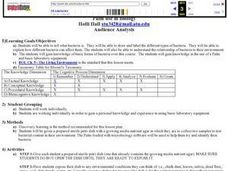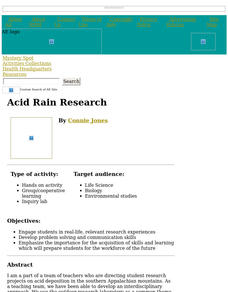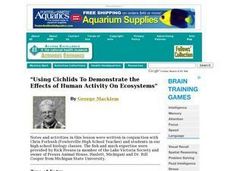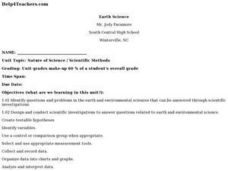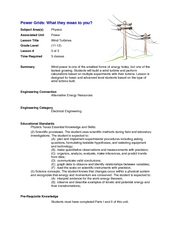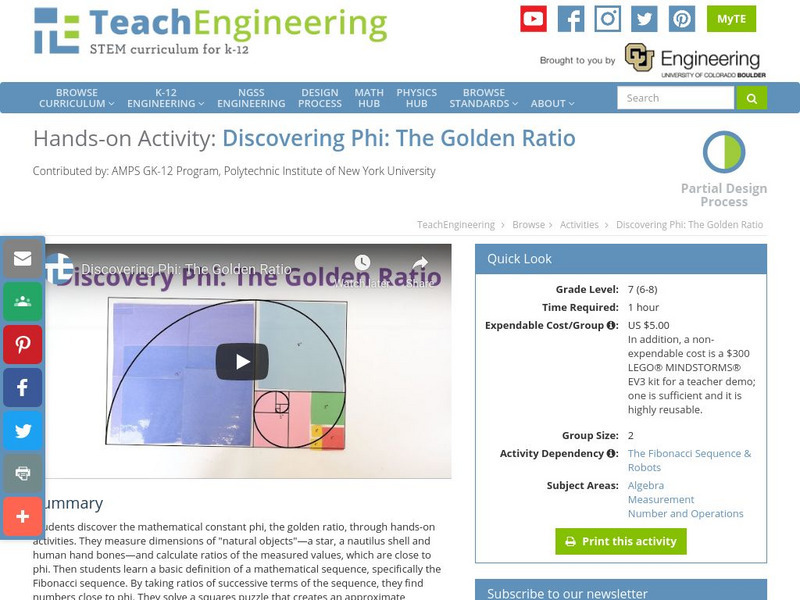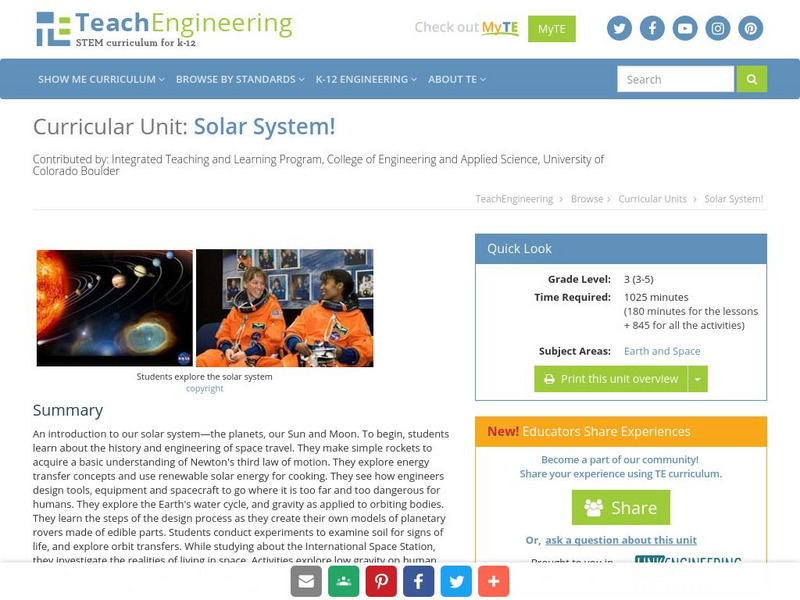Curated OER
Palm Use in Biology
Young scholars view bacteria through a microscope. They draw and label the bacteria using microbiology software loaded onto their Palms.
Curated OER
Ziplock Chemistry
Students investigate various chemical reactions when creating mixtures in ziplock baggies. In this chemistry lesson, students will recognize various chemical reactions and cite evidence. Safety and assessment strategies are included in...
Curated OER
Biomolecules
Students perform an experiment in which they test foods for the presence of proteins, carbohydrates, and lipids. They identify the molecular structure of each type of biomolecule and then discuss how biomolecules relate to nutrition and...
Curated OER
Using Magnetotactic Bacteria to Study Natural Selection
Students observe bacteria that are able to orient themselves using the Earth's magnetic field.They comprehend the difference between anaerobic and aerobic organisms. Students can tell the difference of the shape of magnetic force field...
Curated OER
Thin-layer chromatography
Students produce chromatograms of various vegetable extracts and standards. Using a flat bed scanner, they create a database of the results.
Curated OER
757 Glider Kit
Students work together to complete a 757 Glider kit. They use a GPS to discover how it operates in all weather landings. They complete different obstacles with the glider as well.
Curated OER
Acid Rain Research
Pupils collect samples of rainfall, cloud condensation, and water that trickles through the soil. These samples are tested for pH, conductivity, and the presence of sulfates, nitrates, calcium, and magnesium.
Curated OER
"Using Cichlids To Demonstrate the Effects of Human Activity On Ecosystems"
Students explore the freshwater ecosystem of Africa's Lake Victoria by creating a freshwater aquarium. They investigate factors affecting the aquarium's ecosystem and conduct lab activities.
Curated OER
Earth Science/ Scientific Methods
Students identify questions and problems in the earth and environmental sciences that can be answered through scientific investigations. They design and conduct scientific investigations to answer questions related to earth and...
Curated OER
From Polymers to Bioplastics: Looking Toward Finding Renewable Resources
Students investigate the properties of polymers. In this chemistry lesson, students explain the importance of energy sources. They produce a bioplastic from the lab and evaluate its structural integrity.
Curated OER
Heron's Formula
Students use Heron's formula to calculate the area of a triangle. In this geometry lesson, students use three different methods to solve the area of a triangle. They find and construct the incentor and angle bisector of a triangle.
Curated OER
Investigating Pythagorean Triples
Students investigate and solve Pythagorean triples. In this geometry lesson, students find the missing sides and angles of a right triangle. They graph right triangles and move the sides around to create different angles.
Curated OER
Investigating the Pythagorean Triples
Learners investigate the Pythagorean triples. In this geometry lesson plan, students solve for different parts of a right triangle. They identify the missing side or angle using the pythagorean theorem.
Curated OER
Tune...Um!
Students collect real data on sound. For this algebra lesson, students use a CBL and graphing calculator to observe the graph created by sound waves. They draw conclusion about the frequency of sound from the graph.
Curated OER
SEPARATION OF A STARCH-GLUCOSE MIXTURE USING GEL FILTRATION
Students make a starch-glucose solution and pour it through gel in order to separate the starch from the glucose. They examine how starch is a larger molecule than glucose and test for the presence of these substances using other...
Curated OER
Hazard Mitigation: Bioterrorism
Students discuss different ways to spread infectious diseases. In this bioterrorism lesson, students model the rate of smoke emission using CalRoad software. They analyze the effects of airborne release of biological...
Curated OER
Using Magnetotactic Bacteria to Study Natural Selection
Young scholars demonstrate that living organisms may possess incredible adaptations which enable them to survive. They observe bacteria that are able to orient themselves using the Earth's magnetic field and formulate a hypothesis as to...
Curated OER
Wind Turbines
Students build their own wind turbine. In this physics lesson, students calculate the power output of their wind turbines. They evaluate their design and make the necessary modifications.
Science Struck
Science Struck: Compound Microscope: Basics, Functionality, and Uses
Explains what a compound microscope is, the different parts, how it works, and what it is used for.
National High Magnetic Field Laboratory
Magnet Academy: Mass Spectrometry: How to Weigh an Atom
It's hard enough to weigh something as itty bitty as atoms or molecules. Factor in that they're careening by faster than Jeff Gordon on steroids, and you get an idea what scientists are up against. Using comet particles from NASA's...
TeachEngineering
Teach Engineering: Simple Coulter Counter
Students build and use a very basic Coulter electric sensing zone particle counter to count an unknown number of particles in a sample of "paint" to determine if enough particles per ml of paint exist to meet a quality standard. In a lab...
TeachEngineering
Teach Engineering: Discovering Phi: The Golden Ratio
Students discover the mathematical constant phi, the golden ratio, through hands-on activities. They measure dimensions of "natural objects"--a star, a nautilus shell and human hand bones--and calculate ratios of the measured values,...
TeachEngineering
Teach Engineering: Solving With Seesaws
Students use a simple seesaw to visualize solving a two- or three-step mathematics equation, while solving a basic structural engineering weight balance problem in the process. They solve two-step equations on a worksheet and attempt to...
TeachEngineering
Teach Engineering: Solar System!
An introduction to our solar system: the planets, our Sun and our Moon. Students begin by learning the history and engineering of space travel. They make simple rockets to acquire a basic understanding Newton's third law of motion. They...


